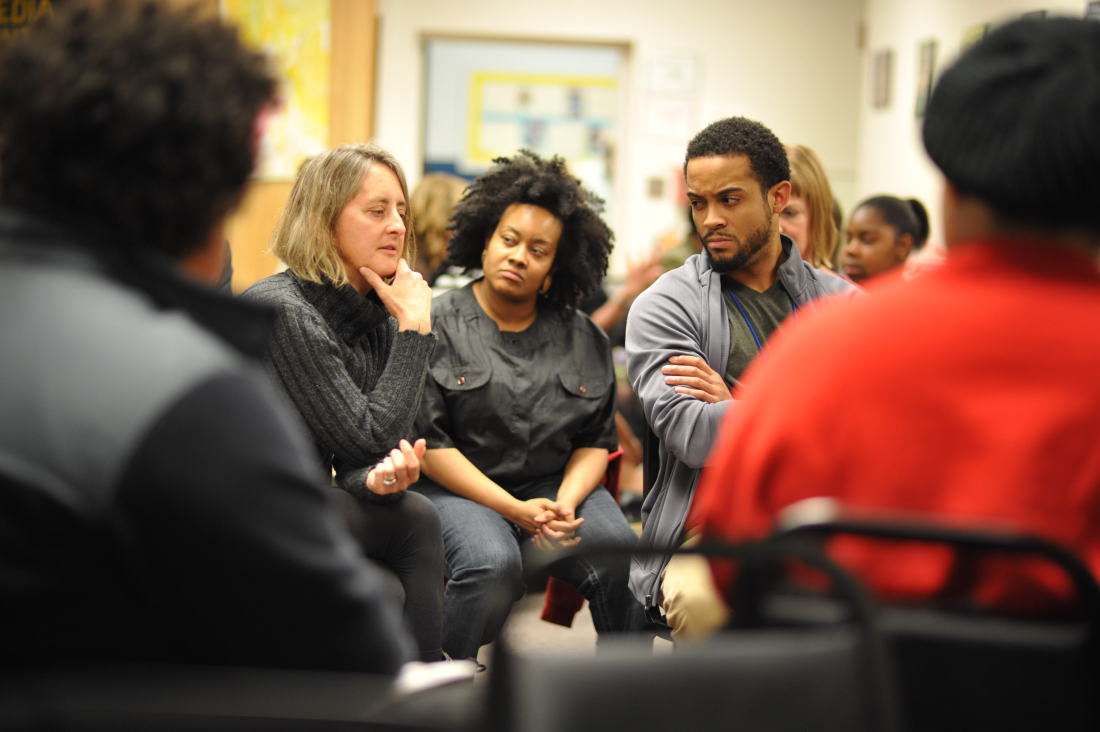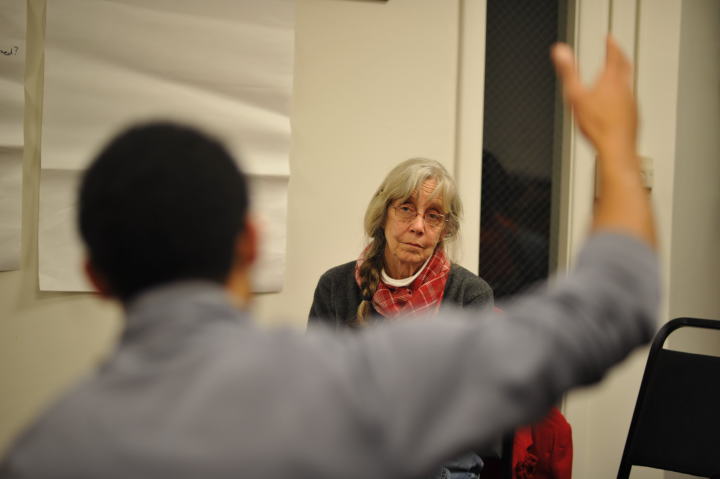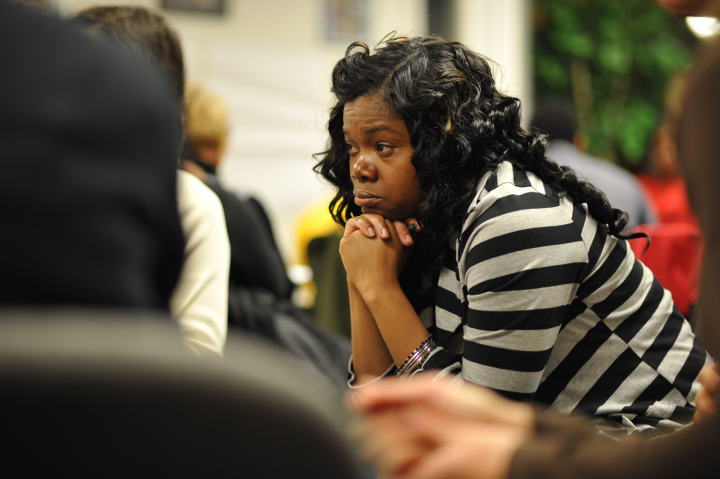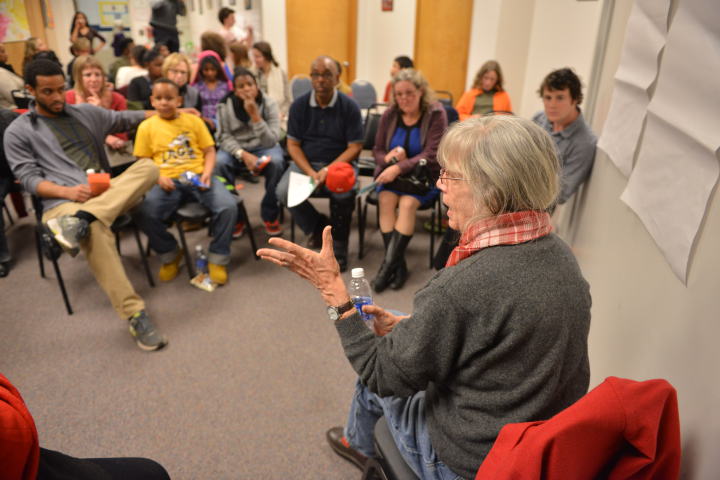The Parent Teacher Organization of Hall Fletcher Elementary School has spearheaded an ongoing discussion of race in Asheville City Schools that aims to reduce inequality.
Jan. 22 marked a meeting of about 100 parents, teachers and residents where problems where discussed and solutions sought. Four groups broke into discussions to talk about observed inequalities for minority students and what can be done to combat this.
Dierdre Gilmer, Hall Fletcher Elementary PTO president, said her organization initially looked for a grant in 2014 from the Asheville City Schools Foundation for racial equity training because they noticed parents weren’t being represented properly at PTO meetings.
“It was just white women getting together at Starbucks,” she said. “With about 40 percent of the students minorities at the school, the parents weren’t being properly represented.”
The training snowballed into Racial Equity Teams from Hall Fletcher and three other schools: Isaac Dixon, Claxton and Asheville Middle School. The teams participated in workshops with Craig White Consulting, improving their skills to help other parents and teachers have conversations about race and racial equity.
The meeting, entitled “Racial Equity Training: A Conversation about Race,” was designed to involve parents in the process. A duplicate session will be held at Hill Crest Community Center on Jan. 29.
The problems identified by parents at the meeting ranged from a lack of black historical knowledge in the classroom to low expectations for students of color.
Erin Hill, one of four Americorps moderators, took down notes from parents in the small groups. Her topic was the relationship between school and family.
“Parents said there’s seemingly low expectations for students of color — they get great grades, but come home and don’t know anything. There’s also a lack of diversity, no representation of themselves in administration,” she said. “We found solutions in reaching out to black leaders, churches and newspapers, and we learned that it’s very beneficial for Spanish-speaking families to have interpretation at meetings.”

Katie Latino, another moderator, hosted the topic of inequitable discipline. She found some surprising observations from parents.
“Problems stem from inequitable referral practices,” she said. “More black students are getting sent to the principal’s office. Students see their peers being handled differently, but feel they can’t talk about it.”
Latino also said students need spaces where they can talk about national race issues, and counseling for trauma before they internalize their depression.
The data collected will be typed up and shared with the district racial equity team, the ACSF board and the Asheville City Schools board of education.
“I think tonight went well, I like to see people still talking,” said Bettie Council, who attended the racial-equity meeting and is a frequent participant of Hood Talk. Council said she saw numerous talks about race throughout 2014 but little action.
“I’m waiting to see them check some of these things off the list. It’s well-meaning, [but] let’s see some progress. We need to have a meeting and say, ‘What needs to be done, and how can we make this happen?'”
Asheville City Schools Superintendent Dr. Pamela Baldwin said the meeting should be seen as a call to action.
“This is a challenge. Stand up, have a conversation about race that might be uncomfortable. Stand up for the children,” she said at the start of the meeting. “Sometimes you have to look in the mirror. I want to hear from you.”







The current issue of the Smithsonian magazine has an article entitled: “Firebrand” cogently written by Cornel West about Malcolm X speaking truth to power–I quote: “MX is the great example of parrhesia…the term goes back to line 24A of Plato’s Apology where Socrates says, the cause of my unpopularity was my… fearless speech, my frank speech, my plain speech, my unintimidated speech.” Easy to talk about talking together, how about discussing the ways in which we talk that do not result in dialogue. MX and Martin Luther King Jr., I believe, had trouble in these regards.
Whoever and where ever we are, as long as we have the courage to dialogue, there is hope. As long as we teach our children to be fearless in reaching out to others, there is hope.
Will life ever be totally fair, equitable, perfect? Probably not. But NEVER should we allow that reality to slow us down.
To the parents of Asheville, and everywhere else, keep up the good work. Never give up. Your kids, our future, depend on your courage and stamina.